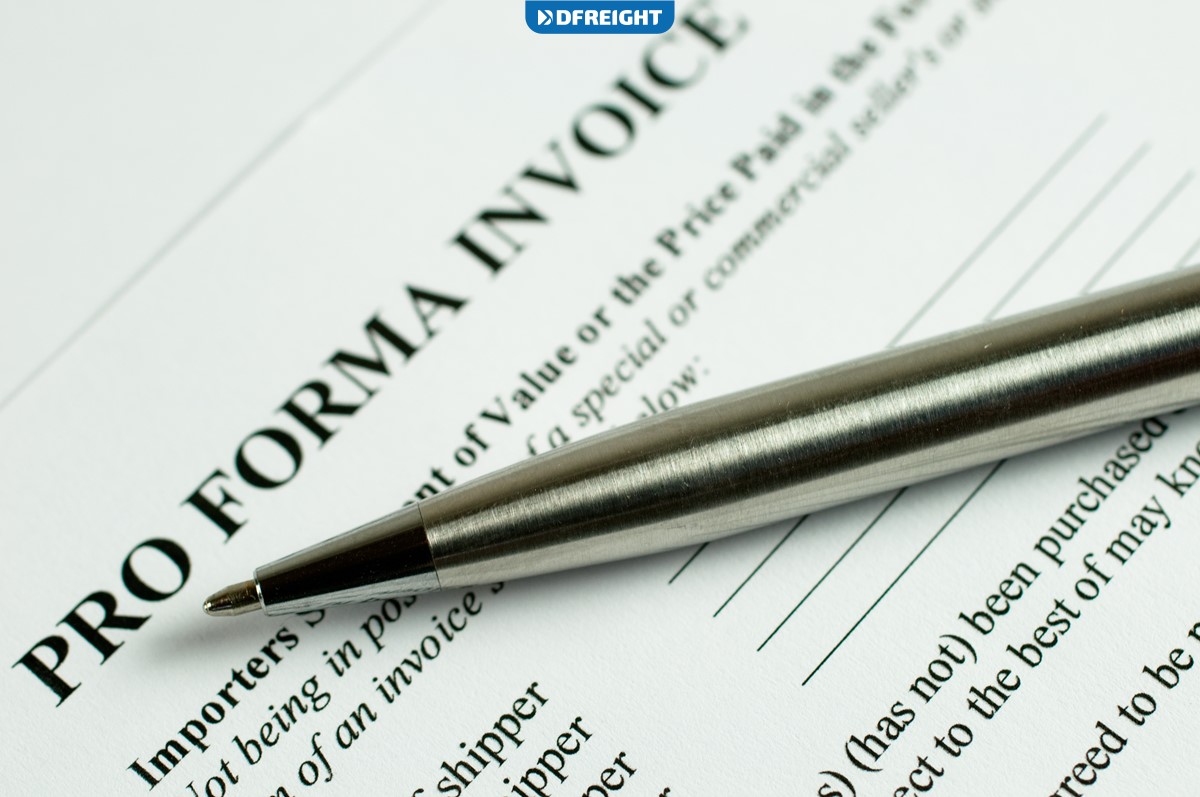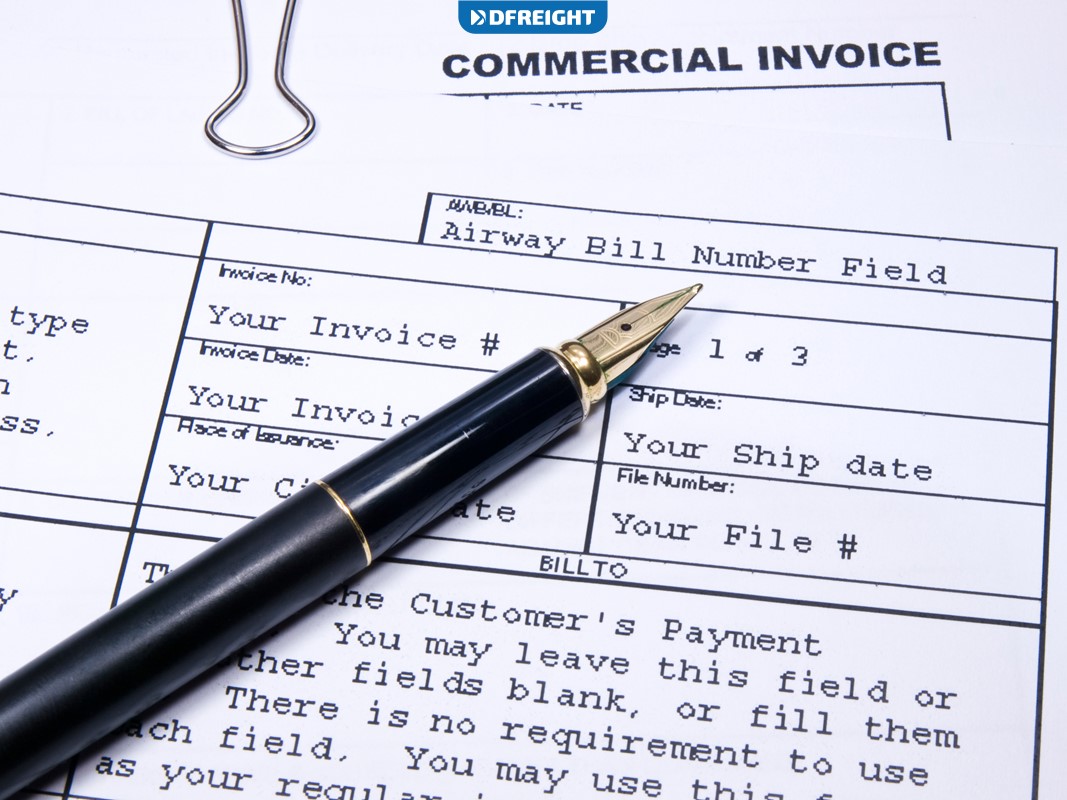There are several documents needed for international shipping from the UAE. Commercial invoices are one of the most significant to understand and prepare accurately. Failure to do so can lead to shipment holdups, delays, and customs clearance complications. Hopefully, with some knowledge and research, you can fill out your commercial invoices like a shipping expert to have your shipping run smoothly. This post will explain a commercial invoice, why you need it for international shipping, and what information you must include.
Table of Contents
What Is Commercial Invoice?
A commercial invoice is a document that is used to request payment for goods or services that have been provided. The invoice will typically include the date of the transaction, the name and contact information of the seller and buyer, a description of the goods or services that were provided, the quantity of goods or services that were provided, the unit price of the goods or services, the total amount due, and the terms of payment. The commercial invoice may also include other information, such as the shipping method, the tracking number, and the date of shipment.
For foreign exports, a commercial invoice is a form that contains crucial details regarding the export. It contains more information than a typical sales invoice to determine tariffs and verify that the cargo is lawful. A customs declaration can also be created using commercial invoices.
The Importance of Commercial Invoices for International Shipping
Commercial invoices are essential in international shipping because they provide a detailed transaction record between the buyer and the seller. This document is used by customs officials to determine the value of the goods being shipped and to calculate any customs duties and taxes that may be due. It is also used to verify that the correct product and quantity were shipped and to track the shipment in case of any problems.
Preparing your commercial invoices properly and accurately will help you avoid shipping hold-ups, maintain excellent relations with your clients, and satisfy customs officials. To ensure the shipping procedure goes successfully for you (the seller) and your foreign buyer, we’ll look at what information you must put on your commercial invoices in the sections below.
Details Included in a Commercial Invoice
What should thus include on a commercial invoice? Although there is no set format, the document must have several fixed components. This comprises information about the items and specifics on the parties engaged in the shipping.
1. Exporter/Seller’s Information
This covers the basic company contact information, such as the name, logo, address, phone number, and email address, along with the exporter/seller’s tax ID number (e.g., VAT, EORI, etc.).
2. Importer/Buyer’s Information
This comprises the basic contact information for the company, company name, address, phone numbers, personal contact details, and the Importer/buyer’s tax ID number (e.g., VAT, EORI, etc.).
3. Shipping Information
The consignee, logistics companies, and customs brokers can use this information to properly plan the transportation, customs clearance, and ultimate delivery of the products. Shipping information includes:
- Type of Freight Service: Road, Rail, Air, or Ocean Freight
- Shipment Type (FCL, LCL, Breakbulk, etc.)
- Freight forwarding agent
- Country of Origin
- Final Destination (Where the shipments are delivered to the final address)
- Vessel/Aircraft Name
- Voyage Number
- Port of Loading (POL)
- Port of Dispatch (POD)
- Country of Final Destination
- Marine Cover Policy Number (If applicable)
- Letter of Credit Number (If products are sold under a Letter of Credit)
- Cargo Insurance Details
4. Reference Numbers
Reference numbers, dates, and extra information are included in these sections:
- Seller’s Invoice Number
- Date of Invoice Issuance
- Bill of Lading (BOL) Number
- Purchase Order Number (Buyer Reference Number)
- Further Reference (if needed)
- Terms/Method of Payment (the methods of payment and the terms of payment, such as 30% deposit and 70% balance upon BOL)
- Additional information (cargo packaging, delivery notes, or additional details)
5. Product Details
The exporter will supply a thorough list of the sold goods. This contains significant data like:
- Product Code (Unique Product Reference Number)
- A detailed description of goods (number of packages, units, weight, etc.)
- Harmonized System (HS) Code (to classify goods through customs clearance)
- Unit Quantity
- Unit Type
- Price (Per Unit Type)
- Further expenses or fees (usually mold, setup fees, transport costs, or taxes)
- Incoterm under which the merchandise has been sold
- Currency of Transaction
6. Bank Information
The exporter/seller’s detailed bank information. This usually contains:
- Beneficiary Details (beneficiary Business Name and address)
- Swift Code: Each financial institution connected to the SWIFT network has a distinctive SWIFT code, which varies in length from 8 to 11 characters. This is called a Bank Identifying Code (BIC) or a SWIFT ID.
- Country of Bank Location
- Bank Name
- Intermediary Bank Details (optional). If the vendor accepts payments through an intermediary bank, the intermediary bank’s information, such as its SWIFT code, Bank Name, Bank Location (Country), and Bank Location (City), should also be provided.
- International Bank Account Number (IBAN)
7. Authorized Signature
The seller may add the following information as a signature to complete the document:
- Date of issue
- Place of issue
- Name of Authorized Signatory
- Signatory Company
- Digital Signature
- Digital Company Stamp
Proforma Invoice vs. Commercial Invoice

A proforma invoice is a preliminary bill of sale. It is typically used to provide an estimate of the cost of goods or services before a formal transaction. On the other hand, a commercial invoice is a formal document issued after a transaction has occurred. It itemizes the products or services that have been sold and the prices charged.
Proforma and commercial invoices are utilized in international shipping, and they frequently contain the majority of the same details.
The primary distinction is that a proforma invoice is prepared before the creation or shipment of goods or services. It verifies the tentative quantities and pricing of the items and the buyer’s purchase request. It allows the buyer to review the agreement before the transaction is finalized.
Contrarily, the commercial invoice certifies the finalized terms of the sale, which may vary somewhat from the estimate stated on the proforma, and is provided after the products are dispatched. For instance, the commercial invoice will reflect that you don’t have enough inventory to fill the entire order or that the price has changed significantly since the proforma invoice was produced. The commercial invoice also specifies the preferred currency for the transaction and how the buyer will pay you.
How to Use Commercial Invoices for Shipping to/from the UAE?
A commercial invoice is a document customs require to clear goods being imported into, or exported out of, the United Arab Emirates. The invoice should include a detailed description of the goods being shipped and the value of the goods.
- When shipping to the UAE, the commercial invoice should be sent to the UAE Consulate or Embassy in the country of origin, along with the other required shipping documents.
- When shipping from the UAE, the commercial invoice should be sent to the customs authority in the destination country, along with the other required shipping documents.
Tips for Filling Commercial Invoices for Shipping to/from the UAE
Some tips for filling out a commercial invoice for shipping to or from the United Arab Emirates include:
- Include the name and contact information of both the sender and the recipient.
- Clearly mark the shipment as commercial and indicate what is being shipped and the value of the contents.
- Use English on the invoice, as this is the UAE’s business language.
- Ensure all information is accurate and complete, which will help facilitate customs clearance.
Final Words
UAE’s commercial invoice requirements are very specific, and it is essential to follow them closely to avoid delays or issues with your shipment. The most important thing to remember is to include all required information and to be as accurate as possible. When in doubt, it is always best to check with your freight forwarder or customs broker to ensure that your commercial invoice is complete and compliant.
Need Help Shipping to/from the UAE

If you need help shipping to or from the UAE, DFreight can assist you with every process step. We can help you create a compliant commercial invoice, choose the right shipping method, and avoid potential delays or issues. Contact us today to learn more about our shipping services to the UAE.
FAQs
What is a commercial invoice?
A commercial invoice is a document that details the goods being shipped, the value of the goods, and the terms of the sale. It is required for all shipments to the UAE.
What information must be included on a commercial invoice?
How can I avoid delays or issues with my shipment?
To avoid delays or issues with your shipment, include all required information on your commercial invoice and be as accurate as possible. You can also check with your freight forwarder or customs broker to ensure that your commercial invoice is complete and compliant.
Who can help me with my shipment to the UAE?
DFreight can assist you with every step of your shipment to the UAE, from creating a compliant commercial invoice to choosing the right shipping method.













